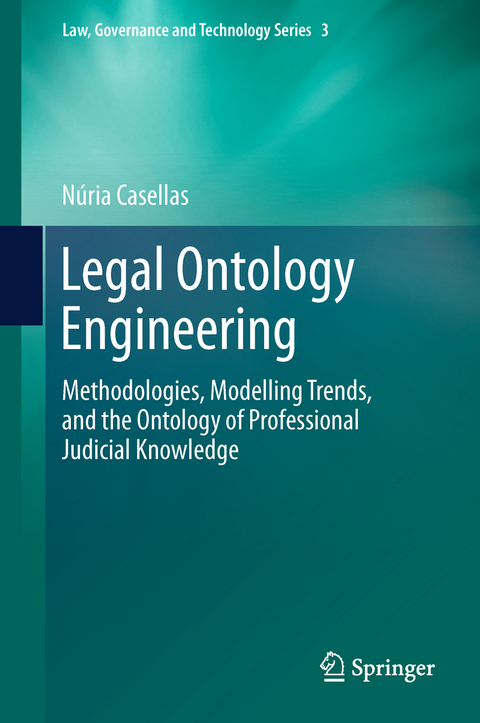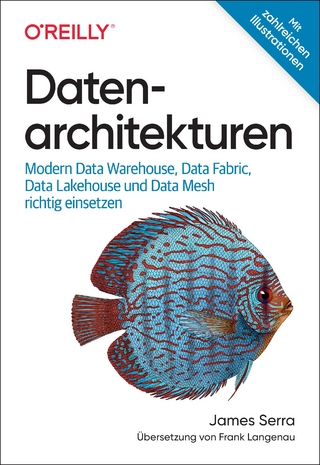
Legal Ontology Engineering
Methodologies, Modelling Trends, and the Ontology of Professional Judicial Knowledge
Seiten
2013
Springer (Verlag)
978-94-007-3754-9 (ISBN)
Springer (Verlag)
978-94-007-3754-9 (ISBN)
Enabling information interoperability, fostering legal knowledge usability and reuse, enhancing legal information search, in short, formalizing the complexity of legal knowledge to enhance legal knowledge management are challenging tasks, for which different solutions and lines of research have been proposed.
Enabling information interoperability, fostering legal knowledge usability and reuse, enhancing legal information search, in short, formalizing the complexity of legal knowledge to enhance legal knowledge management are challenging tasks, for which different solutions and lines of research have been proposed.
During the last decade, research and applications based on the use of legal ontologies as a technique to represent legal knowledge has raised a very interesting debate about their capacity and limitations to represent conceptual structures in the legal domain. Making conceptual legal knowledge explicit would support the development of a web of legal knowledge, improve communication, create trust and enable and support open data, e-government and e-democracy activities. Moreover, this explicit knowledge is also relevant to the formalization of software agents and the shaping of virtual institutions and multi-agent systems or environments.
This book explores the use of ontologism in legal knowledge representation for semantically-enhanced legal knowledge systems or web-based applications. In it, current methodologies, tools and languages used for ontology development are revised, and the book includes an exhaustive revision of existing ontologies in the legal domain. The development of the Ontology of Professional Judicial Knowledge (OPJK) is presented as a case study.
Enabling information interoperability, fostering legal knowledge usability and reuse, enhancing legal information search, in short, formalizing the complexity of legal knowledge to enhance legal knowledge management are challenging tasks, for which different solutions and lines of research have been proposed.
During the last decade, research and applications based on the use of legal ontologies as a technique to represent legal knowledge has raised a very interesting debate about their capacity and limitations to represent conceptual structures in the legal domain. Making conceptual legal knowledge explicit would support the development of a web of legal knowledge, improve communication, create trust and enable and support open data, e-government and e-democracy activities. Moreover, this explicit knowledge is also relevant to the formalization of software agents and the shaping of virtual institutions and multi-agent systems or environments.
This book explores the use of ontologism in legal knowledge representation for semantically-enhanced legal knowledge systems or web-based applications. In it, current methodologies, tools and languages used for ontology development are revised, and the book includes an exhaustive revision of existing ontologies in the legal domain. The development of the Ontology of Professional Judicial Knowledge (OPJK) is presented as a case study.
1 Introduction.- 2 On Ontologies.- 3 Methodologies, Tools and Languages for Ontology Design.- 4 Legal Ontologies.- 5 Modelling Judicial Professional Knowledge: A Case Study.- 6 Some Final Remarks and Issues for Discussion.- References.- Index.
| Reihe/Serie | Law, Governance and Technology Series ; 3 |
|---|---|
| Zusatzinfo | XXII, 298 p. |
| Verlagsort | Dordrecht |
| Sprache | englisch |
| Maße | 155 x 235 mm |
| Themenwelt | Mathematik / Informatik ► Informatik ► Datenbanken |
| Mathematik / Informatik ► Informatik ► Netzwerke | |
| Recht / Steuern ► Allgemeines / Lexika | |
| Recht / Steuern ► EU / Internationales Recht | |
| Recht / Steuern ► Privatrecht / Bürgerliches Recht ► Berufs-/Gebührenrecht | |
| Wirtschaft ► Betriebswirtschaft / Management | |
| Schlagworte | AI • AI and law • Artificial Intelligence • comparative law • E-Administration • E-Courts • e-governance • Judicial Knowledge • Lawful Interaction • Legal Databases • Legal Knowledge • Legal Knowledge Engineering • Legal Knowledge Representation • Legal Knowledge Systems • legal ontologies • Legal Semantics • Legal Semantic Web • Legal Support • Multilingual-legal-information-system • Ontologies • Ontology • Ontology Design • Ontology Development • ontology modelling • Ontology of Professional Judicial Knowledge • OPJK • Semantically-enhanced • Semantic Metadata • semantic web • Social Ontology • Thesaurus |
| ISBN-10 | 94-007-3754-8 / 9400737548 |
| ISBN-13 | 978-94-007-3754-9 / 9789400737549 |
| Zustand | Neuware |
| Informationen gemäß Produktsicherheitsverordnung (GPSR) | |
| Haben Sie eine Frage zum Produkt? |
Mehr entdecken
aus dem Bereich
aus dem Bereich
Modern data warehouse, data fabric, data lakehouse und data mesh …
Buch | Softcover (2024)
O'Reilly (Verlag)
CHF 55,85


